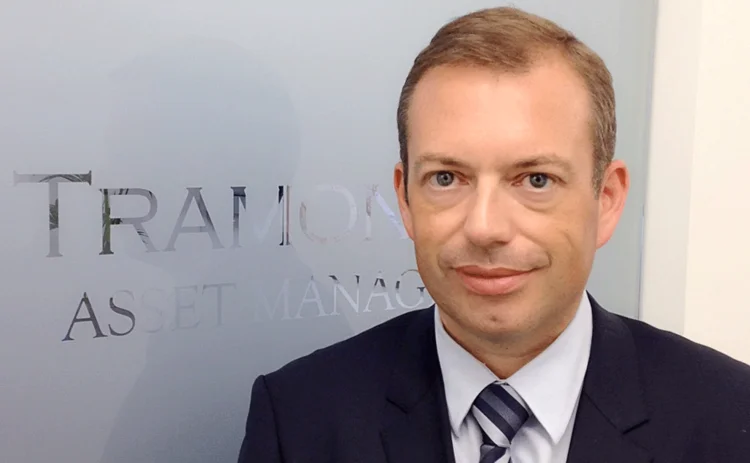
Newcomer of the year: Tramontana Asset Management
Energy Risk Awards 2021: Pioneering carbon-backed securities platform brings new capital, financing options and hedging tools to energy transition

The transition to a low carbon economy requires vast investment in decarbonisation and clean technology. The International Energy Agency estimates that $10.5 trillion is required by 2030 to meet the 2ºC target of the Paris Climate Accord.
The capital markets have a huge role to play in this, while the price of carbon will be one of the biggest signals driving investment. However, access to carbon markets for the vast majority of institutional investors is limited. Carbon certificates cannot be held in clearing systems and they also pose accounting and regulatory risk. Meanwhile, the illiquid nature of the carbon markets beyond the first year makes it hard for corporates to efficiently risk-manage their longer-term carbon exposure. Additionally, the relative volatility of carbon futures prices makes managing and financing a futures hedge position very challenging.
Tramontana Asset Management, an investment management firm that began trading carbon in January 2019, has addressed all these problems with a pioneering investment vehicle that brings new capital to the carbon markets and offers corporates an efficient way to hedge their forward carbon exposure. The instrument repackages credits from the European Union Emissions Trading Scheme (EU ETS) into a standardised note that can be held in clearing systems such as Euroclear and Clearstream. The note is backed by physical carbon credits and is intended to offer investors pure-play exposure to carbon financing without drawbacks such as issuer credit risk and delivery risk.

“The vehicle allows investors to fund the energy transition and get access to carbon in a way they haven’t been able to before,” says Paul Jackman, managing director at Tramontana Asset Management. “The collateralised note format makes it a secure investment and opens up the carbon markets to a much deeper pool of investor capital, not just specialists.”
Last year, the firm executed more than $1.5 billion-worth of carbon-backed securities transactions and now holds over $5 billion in assets under management.
While investors gain pure-play carbon exposure, corporates gain a financing solution for their hedging. “Corporates can buy nearby liquid carbon assets today with absolute price transparency,” says Bharath Manium, also managing director. “They are then held in a registry and delivered back by our platform when the corporate needs them for compliance.”
Additionally, the notes typically have a three- to seven-year maturity, which provides corporates with much longer-dated hedging liquidity than that found in the futures markets. The range of different investors also gives corporates diversity in their financing.
The simplicity of the idea belies a challenging complexity in creating the product, especially around accessing the futures markets, which became essential in order to scale the product and fulfil the larger orders that clients were requesting. The firm’s platform is now able to access a range of futures exchanges including Ice, the European Energy Exchange and the CME.
Jackman and Manium – who previously built and ran the global commodity investor business at Barclays – already had experience of creating carbon-backed structured notes, but these were relatively niche instruments. Their vision for Tramontana Asset Management was to take the product to the next level in terms of scalability and investor accessibility. This hadn’t been done before.
“We couldn’t see anything else anywhere in the commodities market that we could learn from and use as a blueprint,” says Jackman.
Tramontana Asset Management’s first clients were relatively sophisticated institutions familiar with derivatives, but the firm’s goal was always to widen market participation in its products by making them amenable to insurance and pension funds. In 2020, this ambition was realised as the firm added two insurance companies to its client base.
The firm’s typical transaction size is now €200 million ($237 million), indicating a strong institutional appetite for their products.
The ability to offer secure, large carbon-backed investments puts the company in good stead as firms strengthen their environmental, social and governance policies and look for greener investments, Manium believes. Additionally, the negative interest rate environment in Europe is causing traditional fixed-income investors to look for alternative euro investments.
While the EU ETS market is keeping the Tramontana Asset Management team busy, they are also active in other cap-and-trade schemes and voluntary carbon markets.
“We want to be present in areas that are niche, but crucial to the energy transition,” says Manium.
With carbon prices likely to soar over the next few years, investors will increasingly look for ways to access carbon markets while carbon will become a greater burden on corporations’ balance sheets, notes Jackman. “The higher carbon price needed to meet net zero targets will make solutions like ours more important and more useful as time goes on,” he says.
Only users who have a paid subscription or are part of a corporate subscription are able to print or copy content.
To access these options, along with all other subscription benefits, please contact info@risk.net or view our subscription options here: http://subscriptions.risk.net/subscribe
You are currently unable to print this content. Please contact info@risk.net to find out more.
You are currently unable to copy this content. Please contact info@risk.net to find out more.
Copyright Infopro Digital Limited. All rights reserved.
As outlined in our terms and conditions, https://www.infopro-digital.com/terms-and-conditions/subscriptions/ (point 2.4), printing is limited to a single copy.
If you would like to purchase additional rights please email info@risk.net
Copyright Infopro Digital Limited. All rights reserved.
You may share this content using our article tools. As outlined in our terms and conditions, https://www.infopro-digital.com/terms-and-conditions/subscriptions/ (clause 2.4), an Authorised User may only make one copy of the materials for their own personal use. You must also comply with the restrictions in clause 2.5.
If you would like to purchase additional rights please email info@risk.net
More on Awards
Market data provider of the year: S&P Global Market Intelligence
S&P Global Market Intelligence has consistently met demands across Apac’s fast‑evolving capital markets, securing its win at the Risk Asia Awards 2025
Best user interface innovation: J.P. Morgan
J.P. Morgan wins Best user interface innovation thanks to its Beta One portfolio solution
Market liquidity risk product of the year: Bloomberg
Bringing clarity and defensibility to liquidity risk in a fragmented fixed income market
FRTB (SA) product of the year: Bloomberg
A globally consistent and reliable regulatory standardised approach for FRTB
Best use of cloud: ActiveViam
Redefining high-performance risk analytics in the cloud
Best use of machine learning/AI: ActiveViam
Bringing machine intelligence to real-time risk analytics
Collateral management and optimisation product of the year: CloudMargin
Delivering the modern blueprint for enterprise collateral resilience
Flow market-maker of the year: Citadel Securities
Risk Awards 2026: No financing; no long-dated swaps? “No distractions,” says Esposito








